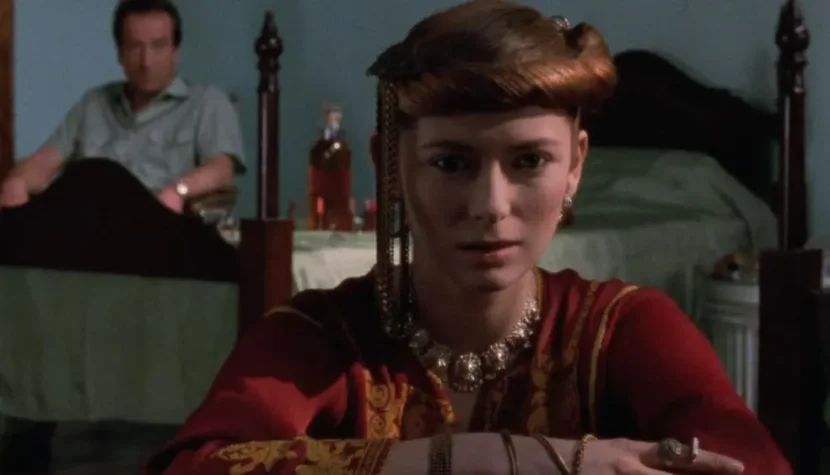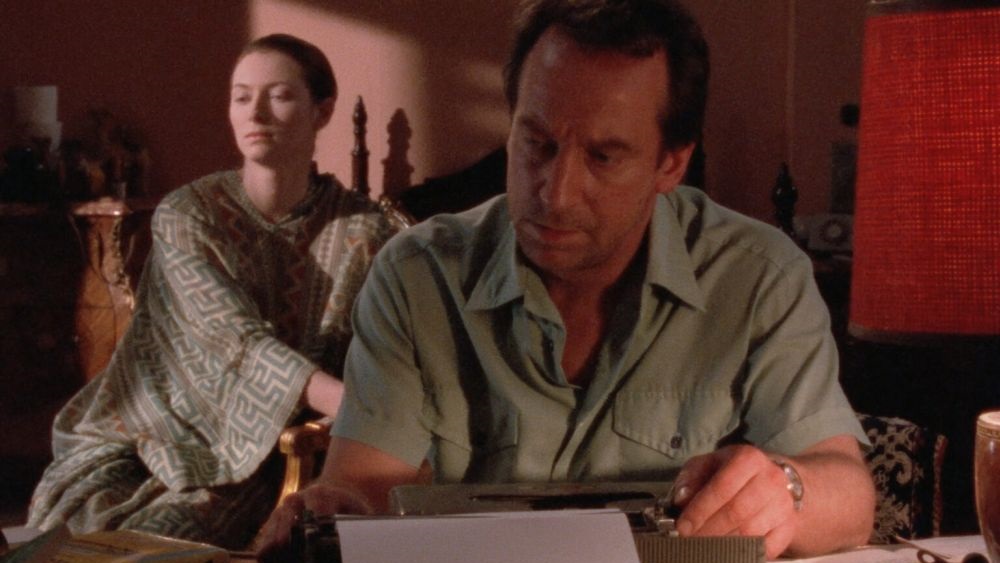FRIENDSHIP’S DEATH: An Intimate Sci-Fi of Ideas

A humanoid robot from another planet in the midst of an armed conflict on Earth—this sounds like cheap B-grade science fiction, but Friendship’s Death is a completely different kind of film.
September 1970. In Jordan, an armed conflict known as Black September is underway, a civil war between the forces of King Hussein I and the Palestinian Liberation Organization led by Yasser Arafat and supported by Syria and Iranian militias. A British war correspondent, Sullivan, rescues a young woman from the battlefield and takes her to a hotel. The woman, who has no identification, introduces herself as Friendship—a humanoid robot sent on a peace mission to Earth by an alien civilization from the constellation Canis Minor. The skeptical, embittered journalist does not believe Friendship’s story, but he is clearly fascinated by her and engages in philosophical discussions with her about politics, science, war, sex, sports, human nature, and Friendship’s home planet. Eventually, Sullivan arranges a British visa for her so they can leave together, but Friendship decides to stay in Jordan.

Peter Wollen (1938–2019) was a British film scholar, university lecturer, screenwriter, and director. He gained fame for his influential collection of essays Signs and Meaning in the Cinema (1969), where he expanded film theory with structuralist and semiotic methodologies. In the 1970s, Wollen shifted from theory to practice, making avant-garde documentaries and feature films with his wife Laura Mulvey, such as Penthesilea: Queen of the Amazons (1974), Riddles of the Sphinx (1977), Amy! (1979), Crystal Gazing (1982), and The Bad Sister (1983). Wollen also co-wrote the screenplay for Michelangelo Antonioni’s The Passenger (1975) alongside Mark Peploe, Enrico Sannia, and Antonioni, although he was uncredited. Funded by the BFI and Channel 4, Friendship’s Death was Wollen’s first and last solo directorial work.
Anyone expecting fast-paced action, spectacular effects, or sudden plot twists will be disappointed, as Friendship’s Death resembles an intimate stage play: two actors, two rooms, minimalist scenery, unobtrusive camerawork, and a script based on dialogues and monologues. There is virtually no action, the effects are limited to a few visual tricks in the finale, and the music serves purely as background. In other words, there are no distractions pulling the audience away from the theatrical performance of two phenomenal actors: Bill Paterson (Sullivan) and Tilda Swinton (Friendship), for whom this was only her fifth big-screen appearance. Swinton was perfectly cast—appropriately alien and reserved, yet childishly naive and innocent. There are echoes here of David Bowie’s remarkable performance in Nicolas Roeg’s The Man Who Fell to Earth (1976).

Swinton and Paterson successfully carry the film, which is heavy with philosophical undertones. Friendship’s Death is science fiction of ideas, where the theme of a visitor from another planet serves as a starting point to ask questions reminiscent of Philip K. Dick’s work: What does it mean to be human? What is the nature of the relationship between humanity and technology? Is it possible for races, species, and nations to coexist peacefully? Wollen does not offer direct answers to these questions, encouraging viewers to draw their own conclusions. Nevertheless, some of the topics discussed by the characters in Friendship’s Death—such as the unstoppable development of artificial intelligence and the still unresolved conflict in the Middle East—seem increasingly relevant with time.

